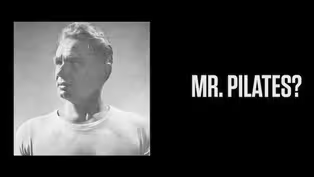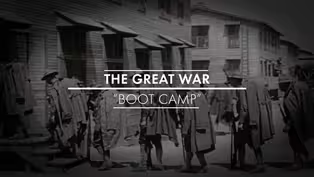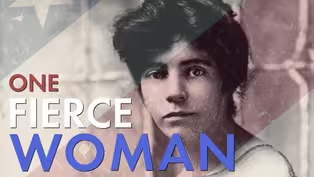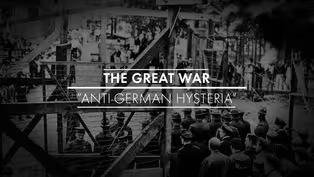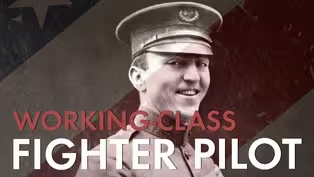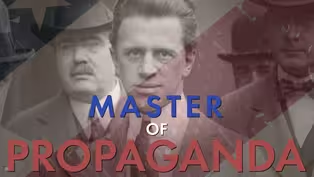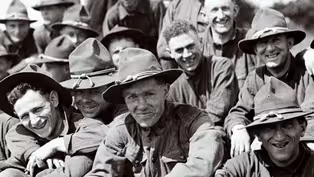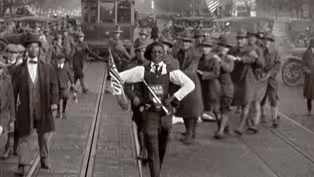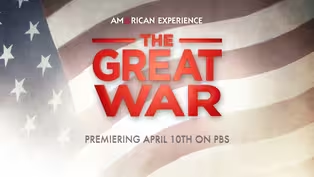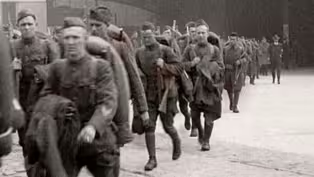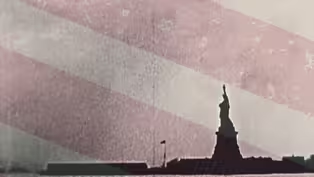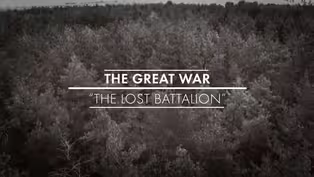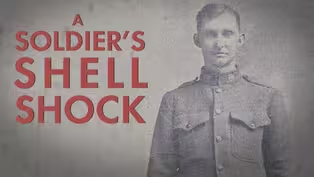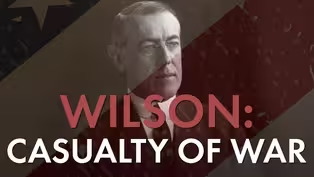
The Great War: Culture Change
Clip: Season 29 Episode 8 | 30s
How WWI transformed America through those whose participation has largely been forgotten.
The Great War tells the rich and complex story of WWI through the voices of nurses, journalists, aviators and the American troops who came to be known as “doughboys.” The series explores the experiences of African American and Latino soldiers, suffragists, Native American “code talkers” and others whose participation in the war to “make the world safe for democracy” has been largely forgotten.
Problems playing video? | Closed Captioning Feedback
Problems playing video? | Closed Captioning Feedback
Corporate sponsorship for American Experience is provided by Liberty Mutual Insurance and Carlisle Companies. Major funding by the Alfred P. Sloan Foundation.

The Great War: Culture Change
Clip: Season 29 Episode 8 | 30s
The Great War tells the rich and complex story of WWI through the voices of nurses, journalists, aviators and the American troops who came to be known as “doughboys.” The series explores the experiences of African American and Latino soldiers, suffragists, Native American “code talkers” and others whose participation in the war to “make the world safe for democracy” has been largely forgotten.
Problems playing video? | Closed Captioning Feedback
How to Watch American Experience
American Experience is available to stream on pbs.org and the free PBS App, available on iPhone, Apple TV, Android TV, Android smartphones, Amazon Fire TV, Amazon Fire Tablet, Roku, Samsung Smart TV, and Vizio.
Buy Now
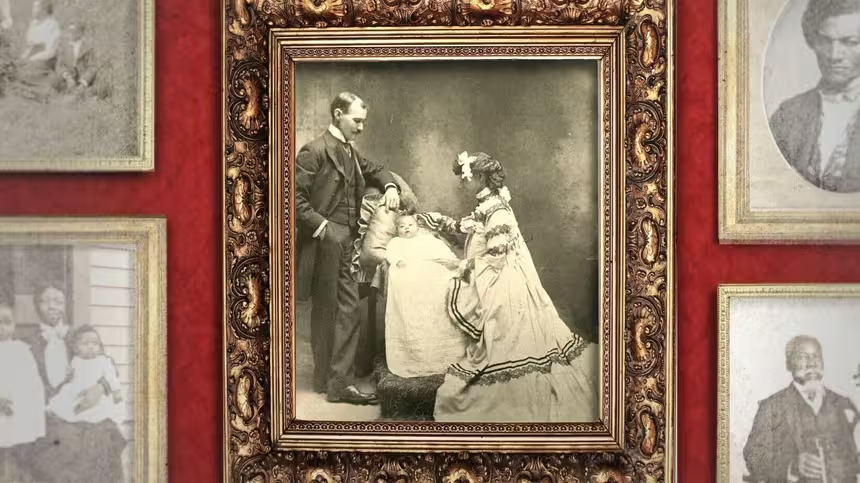
When is a photo an act of resistance?
For families that just decades earlier were torn apart by chattel slavery, being photographed together was proof of their resilience.Providing Support for PBS.org
Learn Moreabout PBS online sponsorshipClip: S29 Ep8 | 2m 38s | There is no such thing as “Mr. Yoga,” but there was a “Mr. Pilates.” (2m 38s)
Clip: S29 Ep8 | 2m 2s | A composer's research process and the challenges he faced in creating music for the film. (2m 2s)
Clip: S29 Ep8 | 1m 46s | How could President Wilson call for democracy abroad while suppressing it at home? (1m 46s)
Clip: S29 Ep8 | 2m 30s | Creating music to reflect the mood and feelings of the film, without editorializing it. (2m 30s)
Clip: S29 Ep8 | 1m 40s | How a race-car driver came to be one of the most famous fighters of the Great War. (1m 40s)
Clip: S29 Ep8 | 1m 37s | George Creel — the man tasked with selling the Great War to the American people. (1m 37s)
Video has Closed Captions
Clip: S29 Ep8 | 8m 28s | After more than two years, thousands of American soldiers boarded ships bound for France. (8m 28s)
The Great War, Part 1: Trailer
Preview: S29 Ep8 | 30s | Explore America’s tortured, nearly three-year journey to war. (30s)
Preview: S29 Ep8 | 2m 10s | The Great War tells the rich and complex story of World War I. (2m 10s)
Clip: S29 Ep8 | 30s | How WW1 to “make the world safe for democracy”—altered America’s place in the world. (30s)
Clip: S29 Ep8 | 2m 24s | American Experience Executive Producer Mark Samels discusses the film and why we made it. (2m 24s)
Clip: S29 Ep8 | 2m 15s | How an editor selects images, footage, and expert interviews to convey The Lost Battalion. (2m 15s)
Clip: S29 Ep8 | 1m 38s | Private Ralph John’s training for the Great War was two days’ practice with a rifle. (1m 38s)
Clip: S29 Ep8 | 1m 12s | For Woodrow Wilson, the Great War was a chance for America to become a global citizen. (1m 12s)
Providing Support for PBS.org
Learn Moreabout PBS online sponsorshipSupport for PBS provided by:
Corporate sponsorship for American Experience is provided by Liberty Mutual Insurance and Carlisle Companies. Major funding by the Alfred P. Sloan Foundation.


